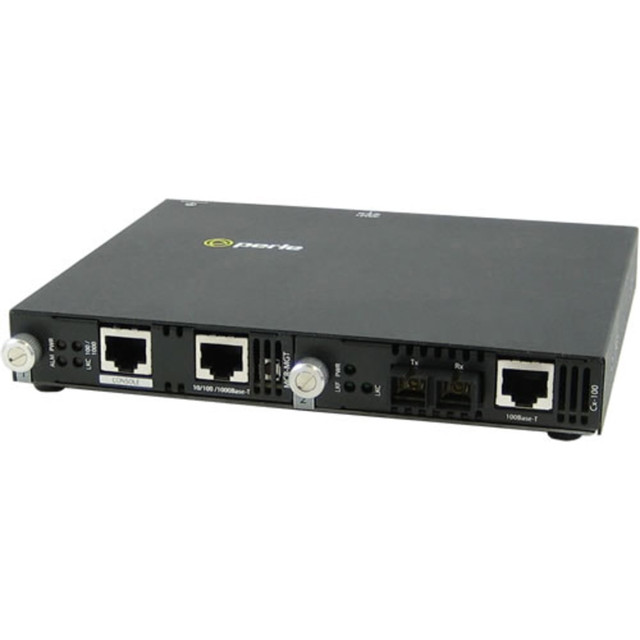
PERLE SYSTEMS 05070424 Perle SMI-100-S2SC120 - Fiber media converter - 100Mb LAN - 100Base-TX, 100Base-ZX - RJ-45 / SC single-mode - up to 74.6 miles - 1550 nm
|
SKU:
|
05071024
|
|
UPC:
|
734660710244
|
|
Condition:
|
New
|
|
Weight:
|
2.70 LBS
|
|
Minimum Purchase:
|
1 unit
|
|
Shipping:
|
Calculated at Checkout
|
|
Unit of Measure:
|
EA
|
|
QPU:
|
1
|
|
Country of Origin:
|
CA
|
|
UNSPSC Code:
|
43201553
|
|
UNSPSC Commodity:
|
Transceivers and media converters
|
|
Model No:
|
SMI-110-S2SC120
|
|
DEPT:
|
PC ACCESSORIES
|
|
CLASS:
|
SURGE/CABLES / NETWORK CABLE/ACC
|